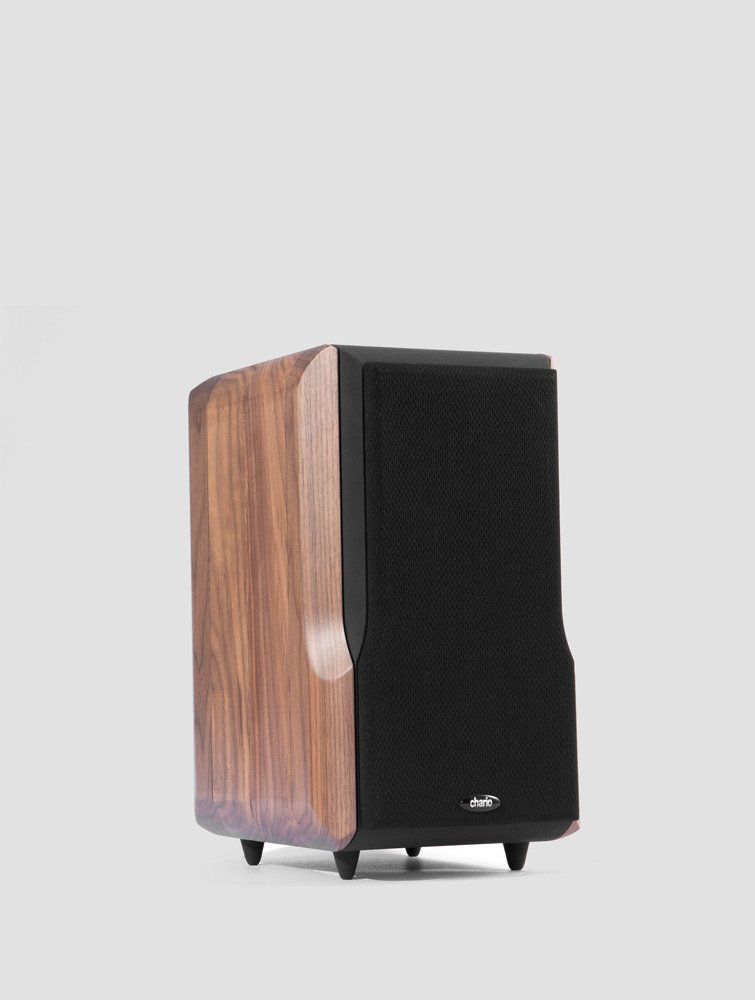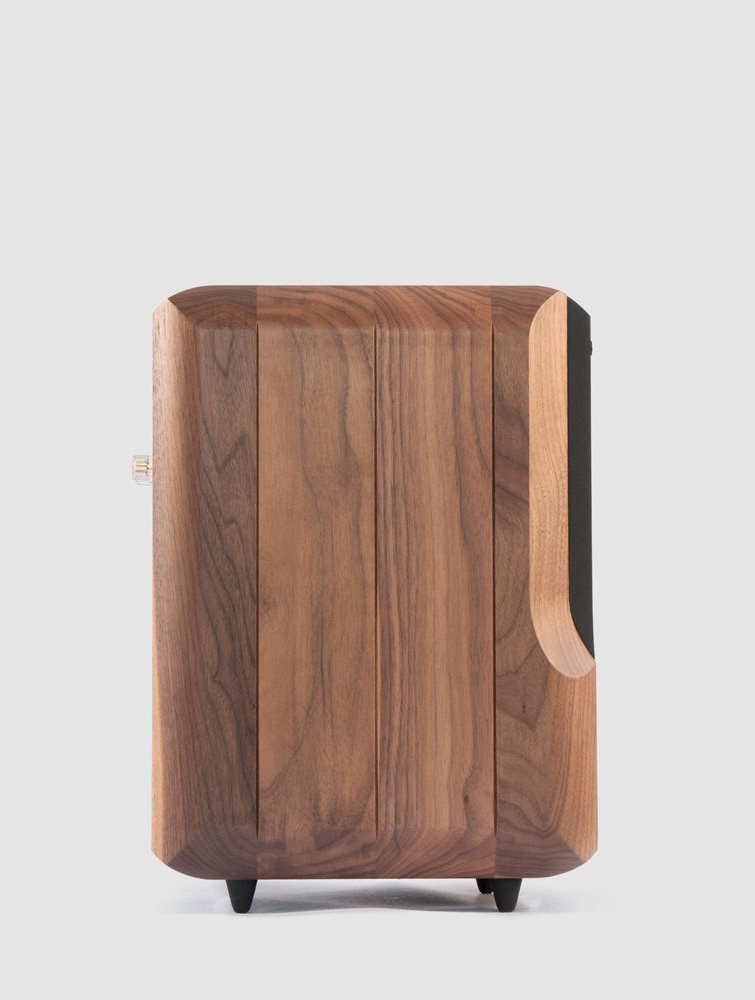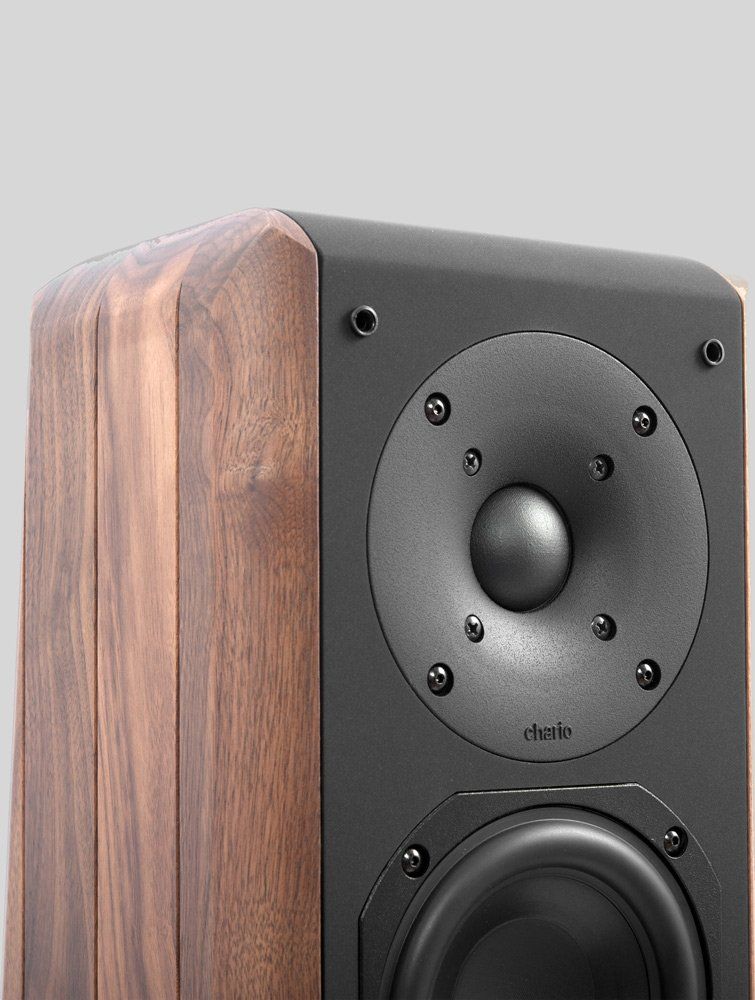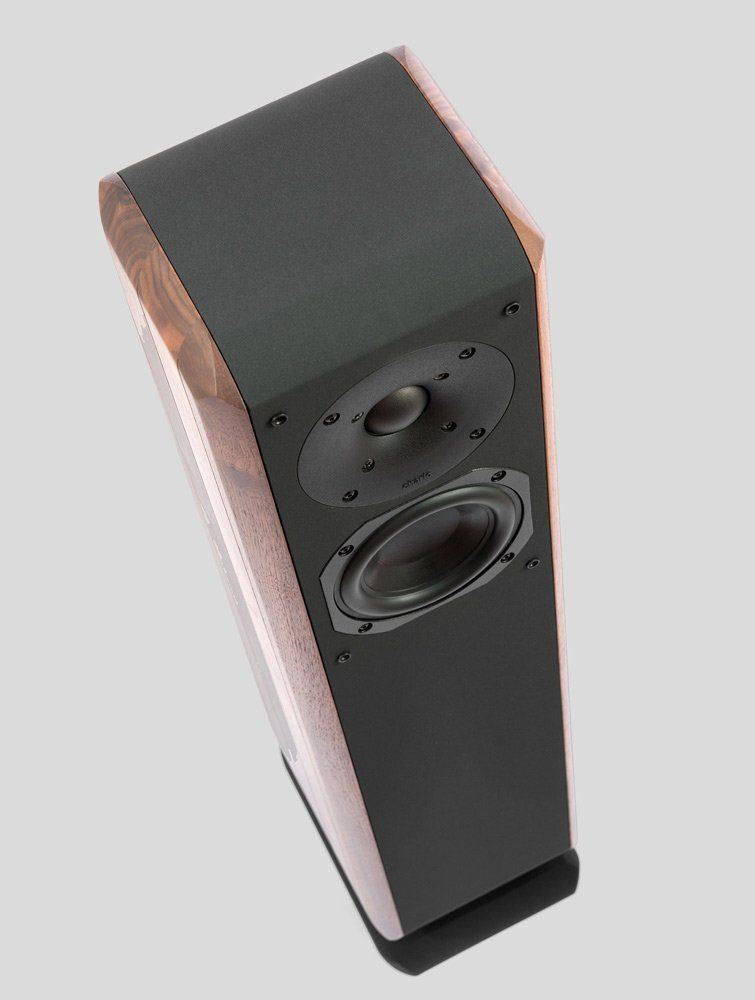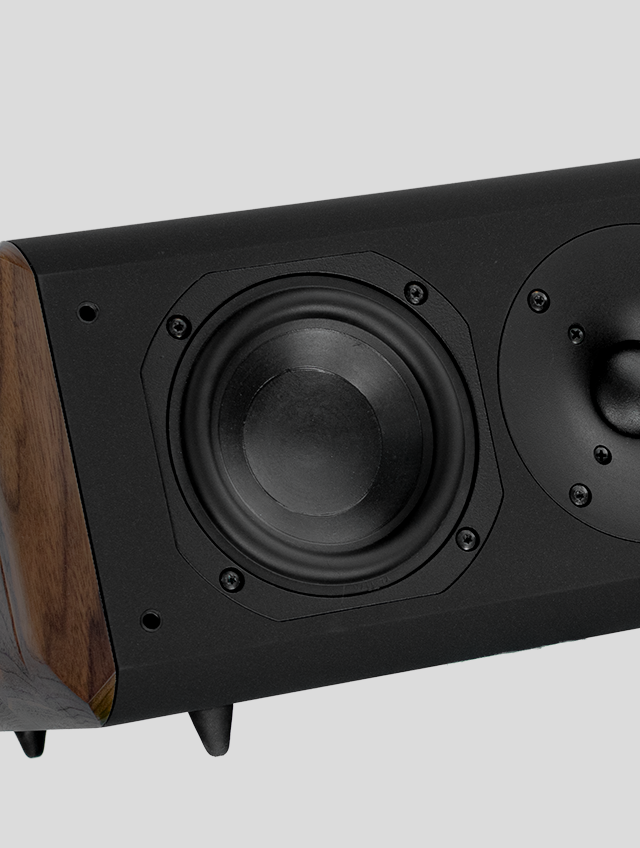CONSTELLATION SERIES
PEGASUS MK2
3 wayS FLOARSTAND
Pegasus is a high-performance loudspeaker designed to deliver precise, balanced, and immersive sound reproduction, suitable for any musical genre. The seamless integration of high, mid, and low frequencies ensures a wide and realistic soundstage, regardless of the content being played.
The tweeter, featuring a 60° dispersion angle, provides controlled directivity in the high-frequency range, ensuring clarity and detail. The front-facing woofer, developed with Chario’s proprietary design, is optimized for highly accurate reproduction of mid and low frequencies, with precise control over dispersion.
Completing the system, a reflex port located at the bottom of the speaker uses an acoustic refraction principle to distribute low frequencies more evenly throughout the environment, enhancing bass response without introducing distortion or turbulence.
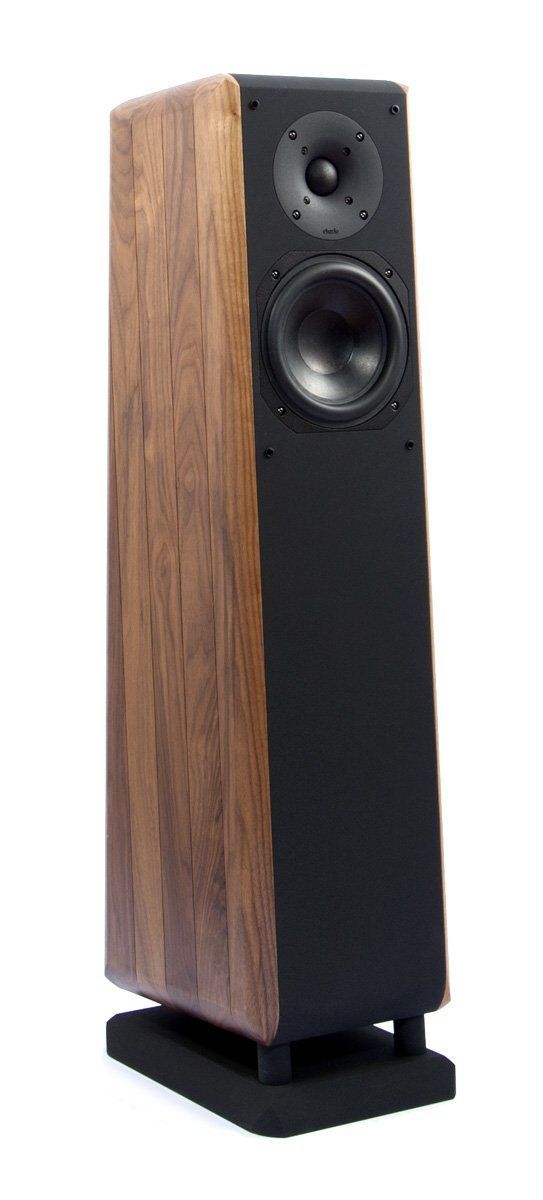
SCIENCE OF SOUND.
ACOUSTIC MODEL AND ADVANCED ALGORITHMS TO INTEGRATION OF TRANSDUCER.
The position of all drivers is determined through mathematical calculations based on acoustic models and optimization algorithms, which take into account the interactions between sound emissions and the overall frequency response. This structured approach allows for a perfect balance between the different transducers, minimizing interference and distortion, and represents the true hallmark of Chario sound, thus ensuring precise, consistent, and natural sound reproduction.
MAXIMUM EFFECIENCY AND BASS CONTROL
near resonance surface technology delivers deeper, cleaner bass with higter efficiency and lower distortion.
The NRS (Near Resonance Surface) principle is based on the interaction between the woofer and the supporting surface, combined with an optimized mechanical design of the driver, to maximize efficiency in low-frequency reproduction. This system takes advantage of the fact that when a speaker is placed very close to a rigid surface (such as a wall or the floor), energy losses due to backward acoustic radiation are reduced. This configuration enhances sound pressure in the bass range thanks to the increased acoustic loading provided by the nearby surface.
From a physical standpoint, the NRS principle allows the woofer to double its efficiency by halving the diaphragm excursion required to produce a given sound pressure level. In a linear system, acoustic power is proportional to the square of the diaphragm’s displacement, while distortion tends to increase with excursion. By reducing displacement while maintaining sound pressure, a cleaner and more controlled sound is achieved, with lower harmonic distortion.
In the Cygnus model, the NRS system has been precisely integrated to operate within the 50 to 170 Hz frequency range. In this critical band—essential for conveying the body and depth of sound—the system achieves a 3 dB gain in efficiency (equivalent to doubling the perceived sound pressure) at the same level of distortion. The result is deeper, more dynamic, and better-controlled bass reproduction without sacrificing sound clarity.



